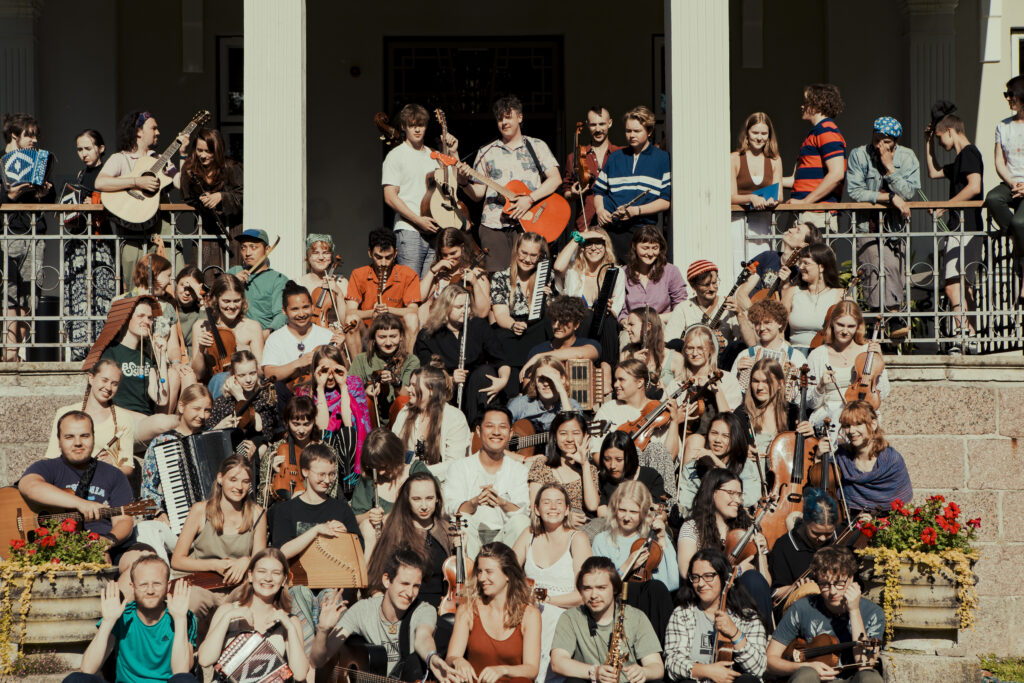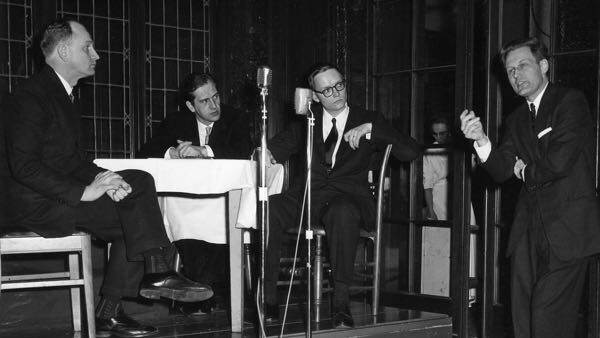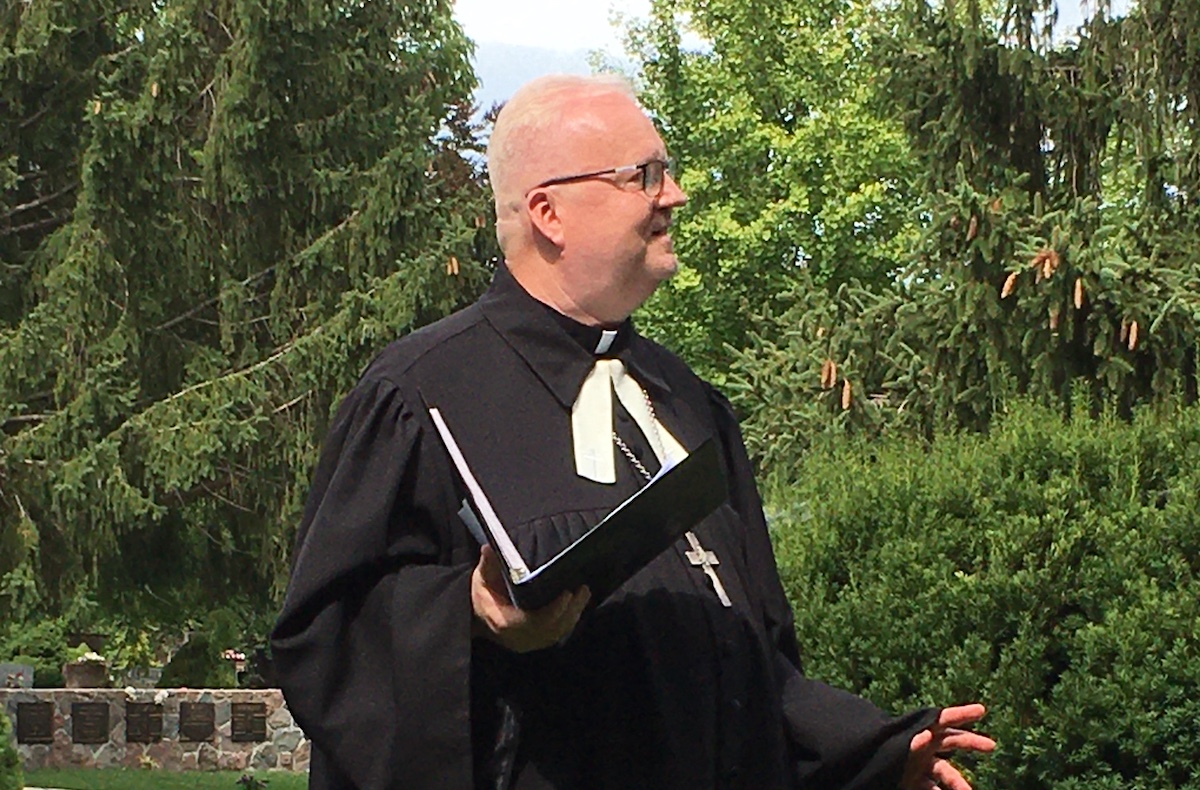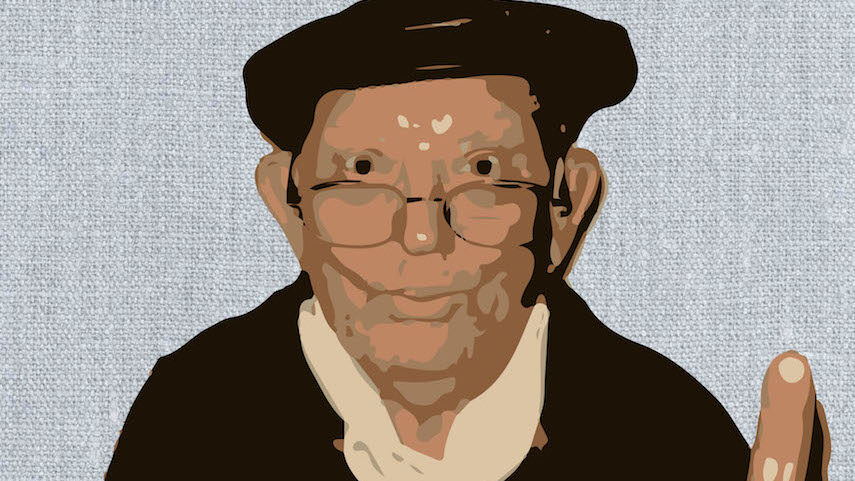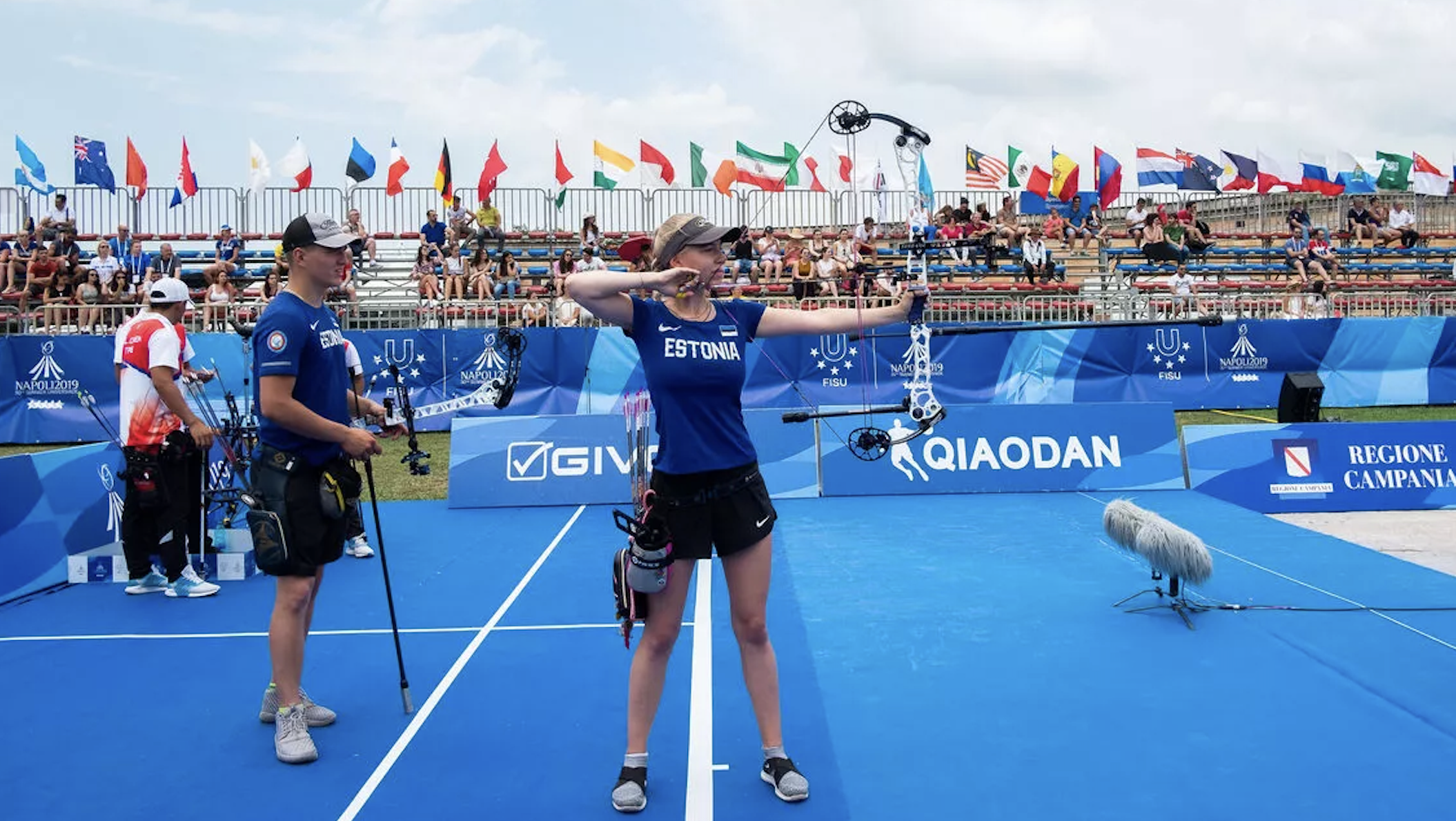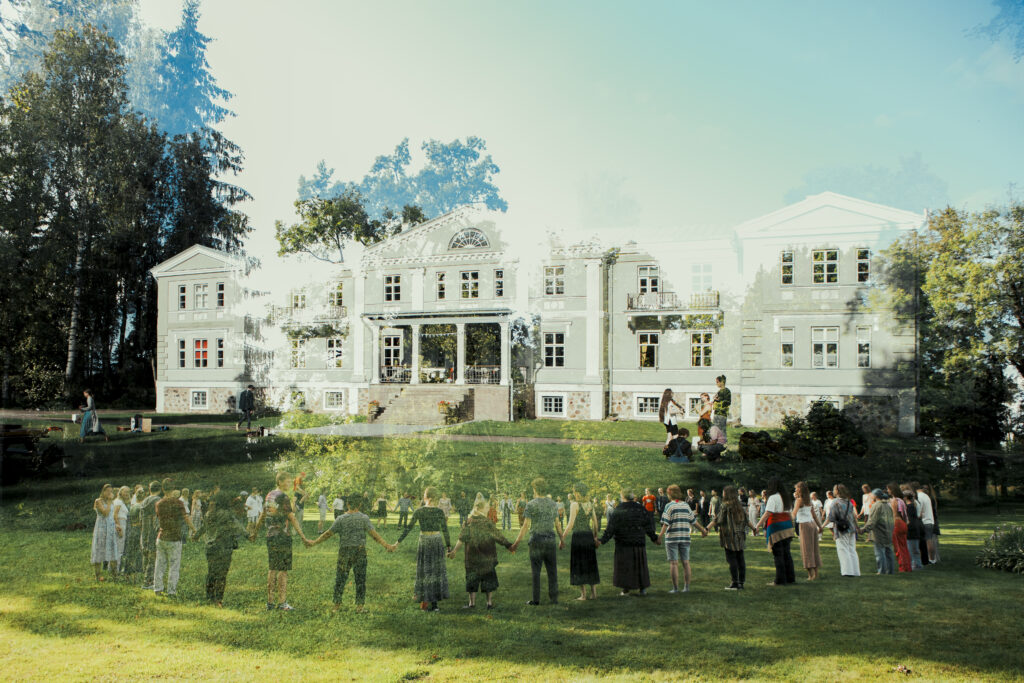
Founded in 1990 and now present in over forty countries, the program engages young folk musicians (from ages eighteen to thirty) through collaborative workshops and performances to promote “peace, tolerance, and understanding,” according to their website. And, although it began in Sweden, Estonia was one of the first three countries where Ethno was established!
To learn more about what Ethno looks like in Estonia and elsewhere, Eesti Elu spoke to Katariina Jaenes, where she revealed what her experiences were like attending various Ethnos around the world, the connection between folk music and community, and how you can get involved. Find our conversation below.
How did you first hear about Ethno?
One of my friends in Estonia mentioned that they had participated and loved it. I had just picked up a small diatonic button accordion called the karmoška a few years earlier, which has become popular in Estonia. My mother loves Estonian and French-Canadian traditional and folk music and I grew up listening to it at home, and I can speak both Estonian and French. My connection to Estonian music was fairly remote, however, since I grew up in the Canadian-Estonian diaspora. My educational background is in STEM and not music per se, and so while in search of a like-minded community, I ended up discovering Ethno.
I took part in Ethno Estonia 2023, Ethno USA 2024, and I'm hoping to take part in Ethno Sweden this summer before singing in the Estonian Song Festival (Laulupidu) in Tallinn, Estonia.
Songs are taught by ear as to make it accessible to those with no formal musical training… The program usually lasts from one to two weeks—songs are taught in the first few days, and performances start halfway through. This can seem daunting, impossible even, but somehow it always comes together and everything resolves just in time for our shows.
(Katariina Jaenes)
What did a typical day of the festival look like?
Every Ethno is a bit different, but they usually take place somewhere with cultural or historic significance, close to nature. At Ethno Estonia we were at the Suure-Kõpu manor in Viljandi, and in Ethno USA we stayed in cabins at Haw River State Park in North Carolina, USA. In the first few days, after we've settled in and gotten to know each other, most of our days are taken up by workshops. We wake up, eat breakfast, warm-up, and jump right in. Evenings are filled with folk dancing, bonfires, open mic nights, and never-ending jam sessions.
Workshops are led by participants; they start off by introducing their culture and the song that they are teaching. Songs are taught by ear as to make it accessible to those with no formal musical training. In the first few days we focus on getting a rough idea of the piece. Arrangements are refined in later workshops with the help of artistic mentors; experienced Ethno participants who facilitate and guide the group. The program usually lasts from one to two weeks—songs are taught in the first few days, and performances start halfway through. This can seem daunting, impossible even, but somehow it always comes together and everything resolves just in time for our shows.
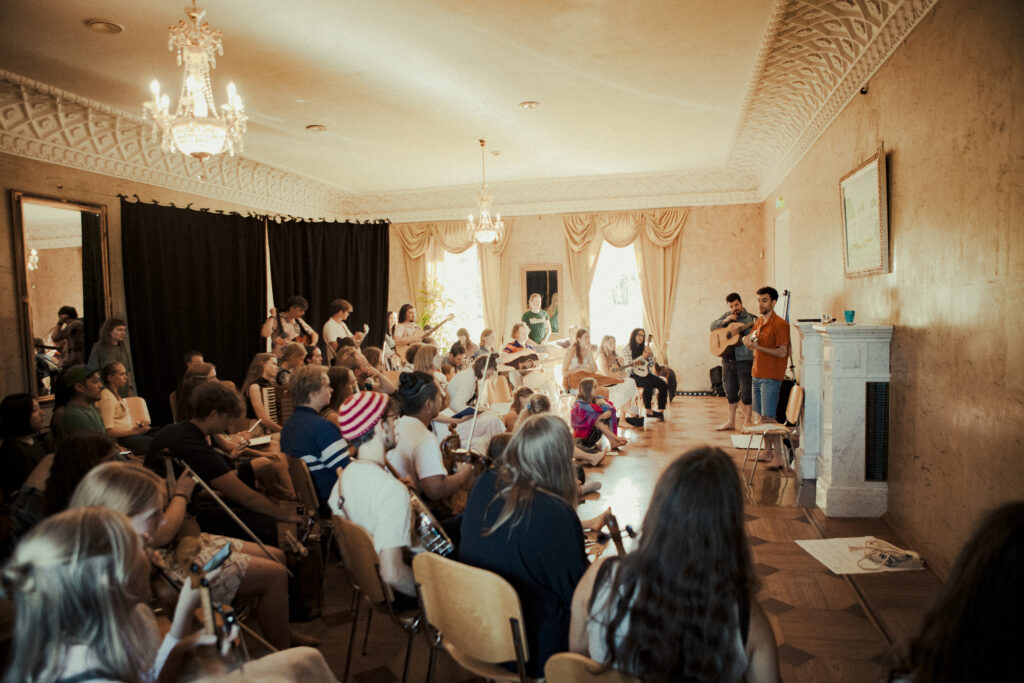
Since cultural exchange is a big part of Ethno in general, each Ethno will organize some events to introduce local culture. At Ethno Estonia we visited Männiku Metsatalu and spent some time relaxing and singing in a traditional smoke sauna. At Ethno USA we got a guided tour of key locations of the Underground Railroad trails in Greensboro, North Carolina, accompanied by African-American spirituals. Many Ethnos also have an educational aspect with school visits and visits from budding musicians, which is always fun.
Performance is a key part of Ethno, which takes place in the second half of the program. Ethno Estonia culminated in performances at Valmiera in Latvia and at Viljandi Folk Music Festival in Viljandi, Estonia. At Ethno USA, we performed at the University of North Carolina in Greensboro as well as at the North Carolina Folk Festival. At the very end you also get the added bonus of being able to attend the festivals with your new friends, and to interact with other artists.
What kind of music did you teach others? What did you learn?
When I attended Ethno Estonia I had the chance to represent Canada and teach a workshop with the fantastic support of Canadian musician Alan Mackie. Together we taught a medley of two French-Canadian tunes; “V'la l'bon vent” and “Aire mignon.” Some of you might recognize Alan as part of Hypnosis Negative, who you can catch at Estonian Music Week in Toronto, from May 22-25!
I don't have much of a formal music education other than singing in various choirs from a young age, and a brief stint playing violin in high school. When it comes to playing the karmoška, I'm essentially self-taught through recordings and YouTube videos. Normally, my lack of formal training makes me quite self-conscious around trained musicians, but the Ethno mentors and participants definitely put me at ease.
It's been an honour to be entrusted with music that is often deeply rooted in indigenous cultures and ceremonies. These experiences are very precious to me, and I'm so grateful to have been able to share them with such open-minded and passionate people who I can now call my friends.
(Katariina Jaenes)
Probably the greatest thing about Ethnos is the ability to learn music from so many different cultures, especially cultures that you normally wouldn't have the chance to interact with. In just the two Ethno's that I've attended, I've been able to learn music from over twenty different cultures and almost as many different languages! I'm definitely forgetting a few, but I've been lucky enough to attend workshops from Algeria (Kabyle), Argentina, Belgium, Canada, Chile, China, England, Estonia, Finland (Ingria), Greece, Haiti, India, Netherlands, Norway, Russia, Sápmi, Sweden, Taiwan (Bunun tribe), and the US (Native American and African American). It's been an honour to be entrusted with music that is often deeply rooted in indigenous cultures and ceremonies. These experiences are very precious to me, and I'm so grateful to have been able to share them with such open-minded and passionate people who I can now call my friends.
Is there a particular moment or memory from these experiences that stuck with you?
There are so many! Being able to take part in Viljandi Folk Music Festival with Ethno Estonia 2023 would probably count as the most surreal experience. Some of my fondest childhood memories are of running around the castle ruins that serve as the festival grounds and of dancing barefoot on muddy fields. Most of my family originates from around Viljandi and so it has always felt like the place in Estonia that I have the most connection with. Since I helped lead a workshop that year, I ended up performing it at one of the biggest stages, right where I attended concerts as a kid. Honestly, I can't say that I remember much as I'm fairly sure that I blacked out a bit on account of how nervous I was. I do, however, remember rehearsing the tune during workshops, and the energy with which everyone received the tune and played it still means the world to me. I'm forever grateful to all of the mentors and participants who supported me throughout the experience!
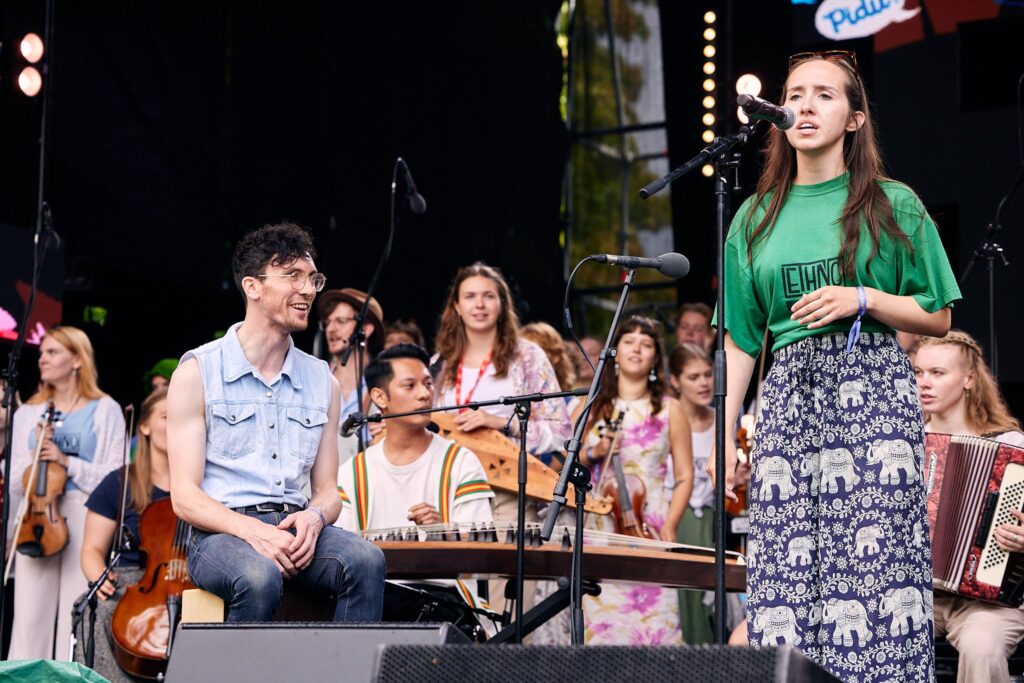
How do you think Ethno shaped you as a musician, and as a person?
Every participant brings with them a whole musical universe tied to their culture and background that I found very inspiring to witness and learn from. Ethno definitely pushed me out of my comfort zone as a musician. Before, I generally kept my music to myself and seldom shared or performed with others, but I am slowly getting braver (emphasis on slowly). Many Ethno friends shared similar experiences of Ethno encouraging and inspiring them to find community through music and to become bolder performers.
Personally, Ethnos have emphasized how much I value community as a foundation that supports us through life's challenges and encourages diverse co-existence amongst all of us. I've grown my own little community of people and have hopefully become a more empathetic person because of it. I think a lot of people who attend Ethnos become motivated to go out into the world and build supportive, creative spaces like Ethno.
What would you say to someone thinking about attending Ethno in the future?
I cannot recommend it enough! I have made many very dear friends through Ethno gatherings and it has broadened my horizons culturally and musically. I think there's something for everyone. I would recommend looking into Ethnos around the world and checking out their social media pages. If you're interested in Ethno Estonia, be sure to watch the short documentary “Eesti ETNO Armastab/In Love with Ethno.” I am also open to giving advice to anyone in the community who’s interested in learning more!
This interview was conducted by Natalie Jenkins as part of the Local Journalism Initiative.
